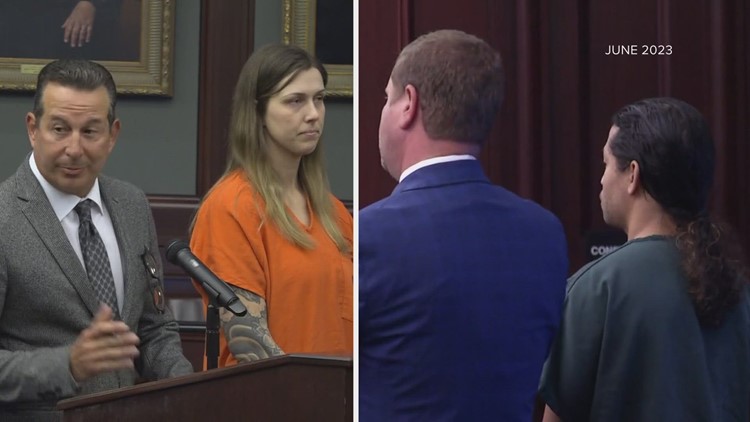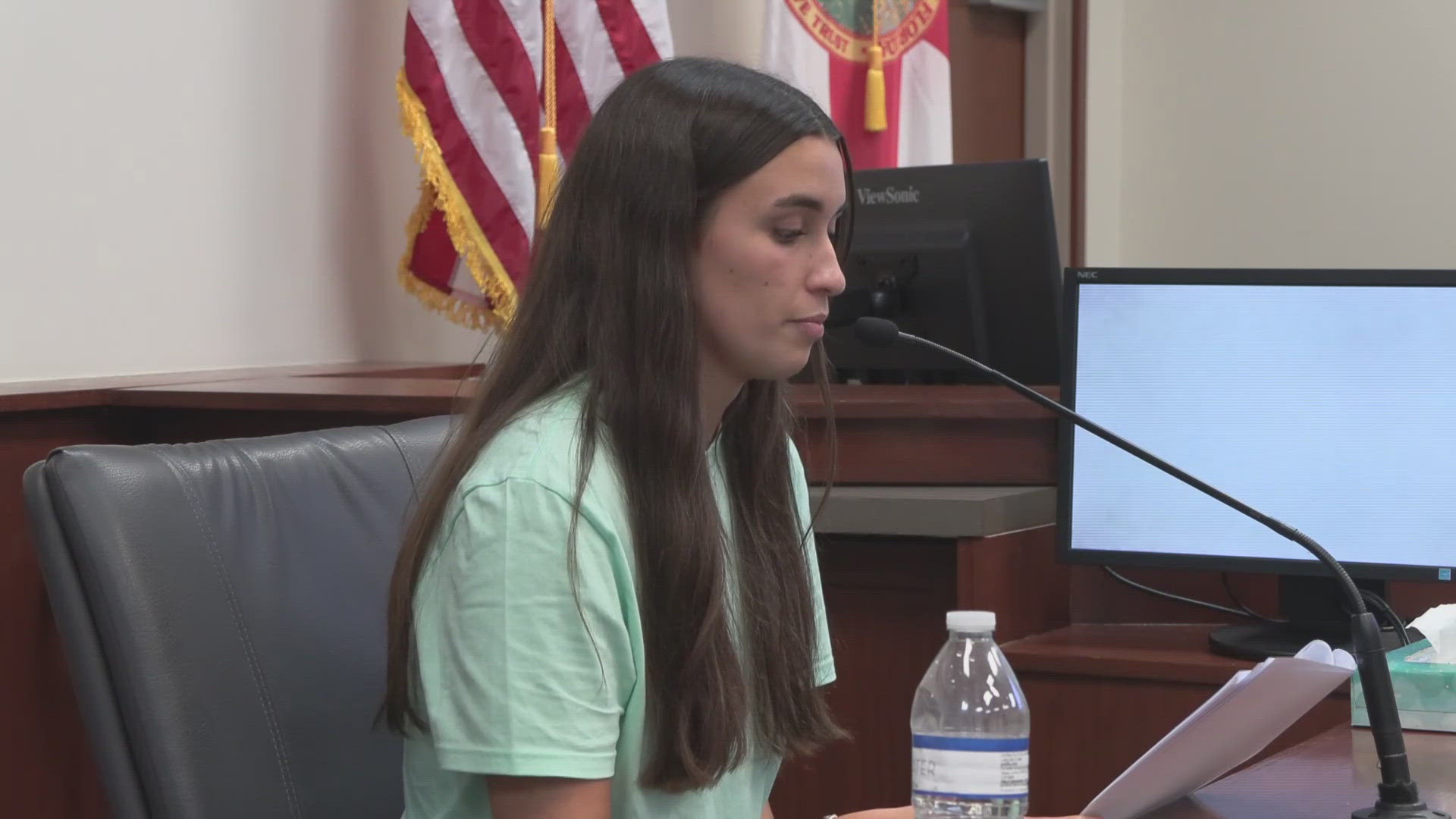JACKSONVILLE, Fla. — The criminal proceedings in the high-profile "murder-for-hire" trial of both Shanna Gardner and Mario Fernandez-Saldana have been at a relative standstill while the judge has had to sort through allegations of violations of attorney-client privilege and motions to disqualify the State Attorney's Office 4th Judicial Circuit.
Gardner and her second husband, Fernandez-Saldana, are facing first-degree murder and conspiracy to commit murder charges in the death of Gardner's ex-husband, Jared Bridegan. Prosecutors have previously stated that if found guilty, they will pursue the death penalty in Gardner and Fernandez's cases.
Jared Bridegan was murdered in February 2022 after dropping off the twins he shared with Gardner to her home. As he was leaving the Sanctuary neighborhood in Jacksonville Beach, investigators say a tire was place in a dimly-lit, narrow stretch of road and when Bridegan exited his car to move it, he was shot several times.
Gardner and Fernandez have separate defense teams, but both have filed motions to disqualify the State Attorney's Office 4th Judicial Circuit. The motions center around allegations of misconduct while handling attorney-client privileged communications and a debate over two documents the state says are evidence and Fernandez's defense says are privileged.
Fernandez will have his hearing on the motion first, the afternoon of April 18. His defense attorney, Jesse Dreicer, states in the motion that the day after Fernandez's devices were seized, Feb. 7, 2023, he contacted the State Attorney's Office to tell them there were privileged communications on Fernandez's devices. Ten days later, the motion states, in a court hearing the state agreed to use a taint team to pull out attorney-client privileged communications from the devices so they would not be seen by investigators or prosecutors.
Then in September, the motion goes on to say that during a conversation between Dreicer and lead prosecutor, Assistant State Attorney Christina Stifler, a Word document was mentioned by Stifler as being found on Fernandez's devices called "Confidential Communications", it included text messages between Fernandez and Henry Tenon.
Tenon has pleaded guilty to second-degree murder charges and prosecutors say he has admitted to firing the fatal shots and has agreed to testify at the upcoming trial. Tenon rented a home from Fernandez.
Dreicer states in the motion he found this concerning because he had told Fernandez to label all legal emails and attachments as "Confidential Communications". Also, when a Nextpoint site was made to post the discovery in the case, Dreicer states he found at least 66 emails that were uploaded to the site that were privileged and that as many as 28 people had access to the Nextpoint site.
The state responded to Fernandez's motion by saying the uploading of the information to the Nextpoint site was an unintentional act by a third party vendor and "no one from the prosecution team or the State Attorney's Office reviewed any privileged emails or texts."
In regards to the "Confidential Communications" document, the state responded in its motion saying "Within one of the file folders from the Google search return for Fernandez, there was a document titled 'Confidential Communications' with a spreadsheet of texts between Henry Tenon and Fernandez." It goes on to state that no attorney names, phone numbers or emails were listed on the spreadsheet and there was no attorney-client privileged communications in the folder or document.
Gardner, represented by Jose Baez and Patrick Korody, will have her hearing on the motion on Friday afternoon, April 19. The motion filed by her defense team states Gardner's devices were seized on Feb. 6, 2023 and the next day, the Bedell Law Firm alerted the State Attorney's Office there was likely privileged material on the devices. Her defense team also agreed to a taint team pulling privileged information from the devices before it was viewed by investigators or prosecutors.
Gardner's defense motion goes on to say that in May 2023, detectives obtained copies of Gardner's iMessages from 2016-2022 and those messages were divided up between two detectives with Jacksonville Beach Police Department and three ATF agents without going through the taint team first.
The motion further states that on May 11, 2023, an ATF agent reached out to Stifler to let her know she felt she had viewed something privileged and when the United States Secret Service Agent acting as the taint team had questions about a privileged document, he would reach out directed to A Stifler to ask for legal advice.
Gardner's defense team says the prosecution engaged in "outrageous government conduct and prosecutorial misconduct" and goes on to say the state showed a disregard for the agreement and sanctity of attorney-client privilege.
It is expected that Judge London Kite will listen to the arguments during the hearings and likely issue a written order outlining the next steps.



